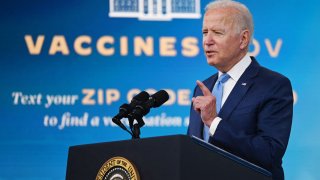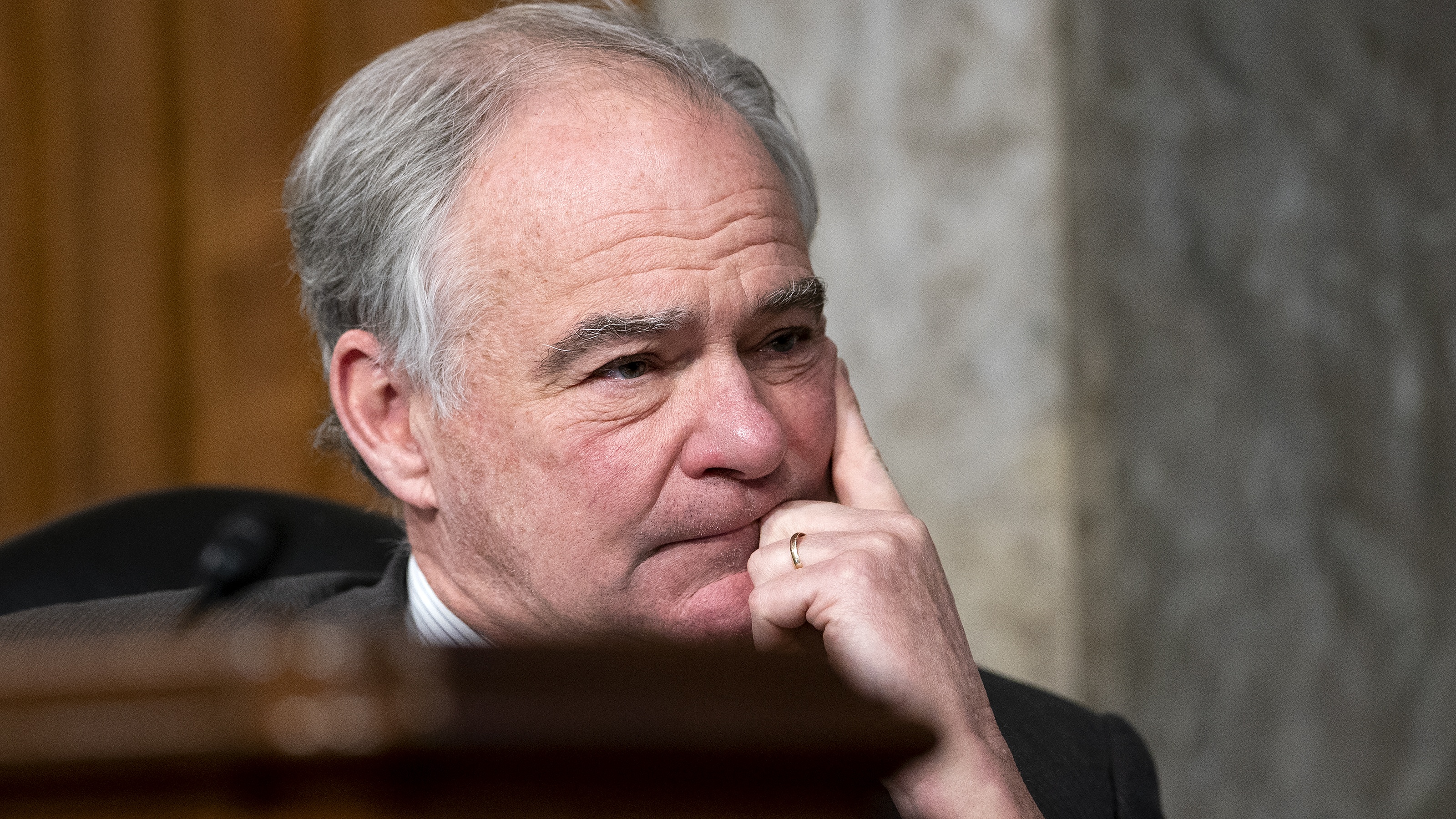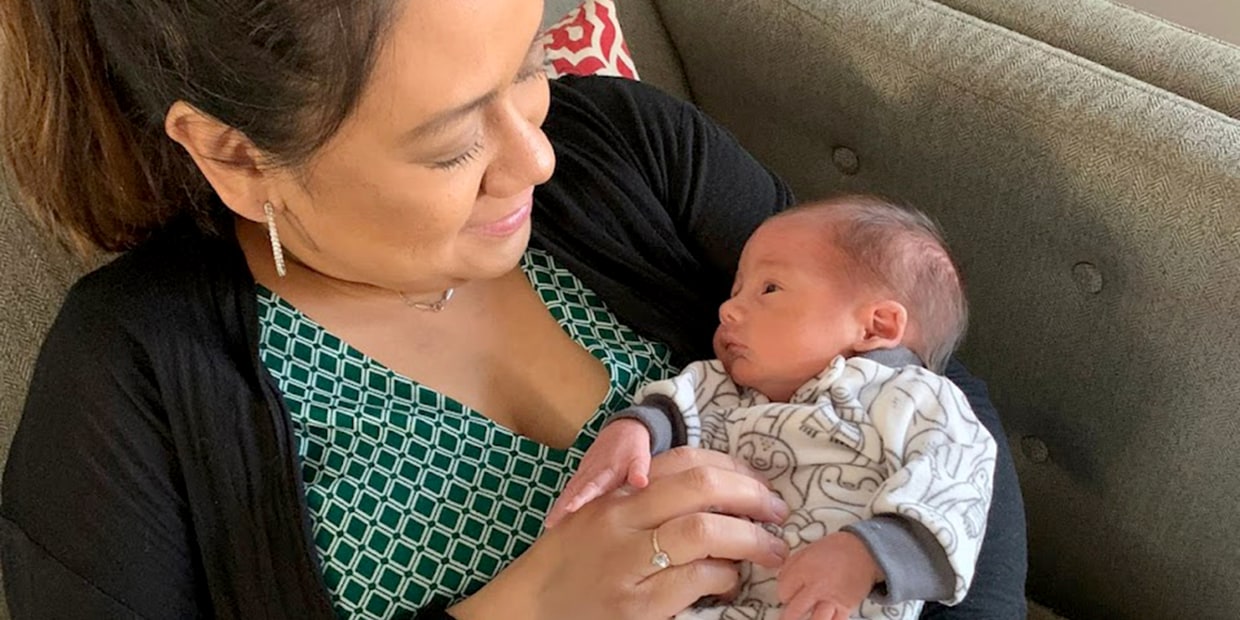
Confronting the pandemic's lasting shadow, President Joe Biden has ordered a new national research push on long COVID, while also directing federal agencies to support patients dealing with the mysterious and debilitating condition.
Biden assigned the Department of Health and Human Services Tuesday to coordinate an urgent new initiative across federal agencies, building on research already underway at the National Institutes of Health.
Watch NBC6 free wherever you are
He also directed federal agencies to support patients and doctors by providing science-based best practices for treating long COVID, maintaining access to insurance coverage, and protecting the rights of workers coping with the uncertainties of the malaise. Of particular concern are effects on mental health.
Long COVID is the catch-all term for a hydra-headed condition whose symptoms can include brain fog, recurring shortness of breath, pain and fatigue. Rough estimates are that it affects as many as 1 in 3 people who recover from COVID-19, although the severity and duration of symptoms vary. Despite intense investigation, the causes of long COVID are not well understood and treatment largely focuses on helping patients cope with their symptoms as they try to rebalance daily routines.
Get local news you need to know to start your day with NBC 6's News Headlines newsletter.
The White House also acknowledged that long COVID appears to be a disability, meaning that patients could be entitled to the protection of federal laws that prohibit discrimination based on health conditions and call for accommodations to allow people to lead productive lives.
“The administration recognizes that the COVID-19 pandemic has resulted in new members of the disability community and has had a tremendous impact on people with disabilities,” said a White House overview.
Some independent experts praised the administration for its comprehensive plan but noted the lack of a timeline for results.
“This is a very important move on the part of the Biden administration to acknowledge that long COVID is real, that it is a significant threat, and that much more needs to be done,” said Dr. Leana Wen, a former Baltimore health commissioner and commentator on the pandemic. “The emphasis on treatment for long COVID, and recognizing that this could be a source of ongoing disability, are long overdue.”
A prominent advocate for COVID patients sensed a breakthrough.
“This is the first effort that truly comports with the needs of people who are suffering,’’ said Diana Berrent, founder of Survivor Corps, a support group that connects patients with government and private researchers.
Advocates have been clamoring “for the government to create a command center for long COVID," she added. "Up until now, that hasn’t existed.’’
“I see this as a global, comprehensive approach to an extremely thorny issue that has previously received a scattershot approach," Berrent said.
Medical research thus far has led to theories about what causes long COVID, but no single root. One theory revolves around lingering infection or virus remnants that may trigger inflammation in the body. Another possibility involves autoimmune system responses that mistakenly attack normal cells. Researchers are also investigating the role of tiny clots.
More Long COVID Coverage
The White House said Biden's order will expand and build on a $1 billion research study already underway at NIH, called the RECOVER Initiative. One goal is to speed signing up 40,000 people with and without long COVID into the study. Around that effort, Health and Human Services will coordinate a government-wide research plan on long COVID.
HHS will also deliver a report to the nation on long COVID later this year. “Millions of Americans may be struggling with lingering health effects,” said HHS Secretary Xavier Becerra. “COVID is having effects long after the actual virus has escaped us.”
Biden's order puts a major focus on treatment. An HHS unit called the Agency for Healthcare Research and Quality will investigate best practices and get useful guidance to doctors, hospitals and patients. The Department of Veterans Affairs, which already has 18 facilities running long COVID programs, will serve as an incubator of ideas and strategies. The administration is seeking $20 million from Congress for “centers of excellence” to develop templates for care.
Dr. Fernando Carnavali of Mount Sinai’s Center for Post-COVID Care in New York said he understands complaints that the government hasn’t made enough progress on long COVID.
“For our culture today, which needs answers yesterday, it’s just hard,’’ Carnavali said. “In chronic disease, in general, it’s not how it works. We have other examples, from HIV, answers did not come right away."
Finally, the administration said its plan will provide direct support for patients by safeguarding access to insurance coverage and extending the umbrella of civil rights protections to people with long COVID. In keeping with Biden's focus on reducing racial and ethnic disparities in health care, part of the emphasis will be on minority communities that have borne a high toll from COVID-19.
Federal health programs, which can serve as a model for private insurance, will look for ways to make sure that treatments for long COVID are covered and paid for. “The administration is working to make long COVID care as accessible as possible,” said a White House overview of Biden's plan.
AP Medical Writer Lindsey Tanner contributed to this report.



